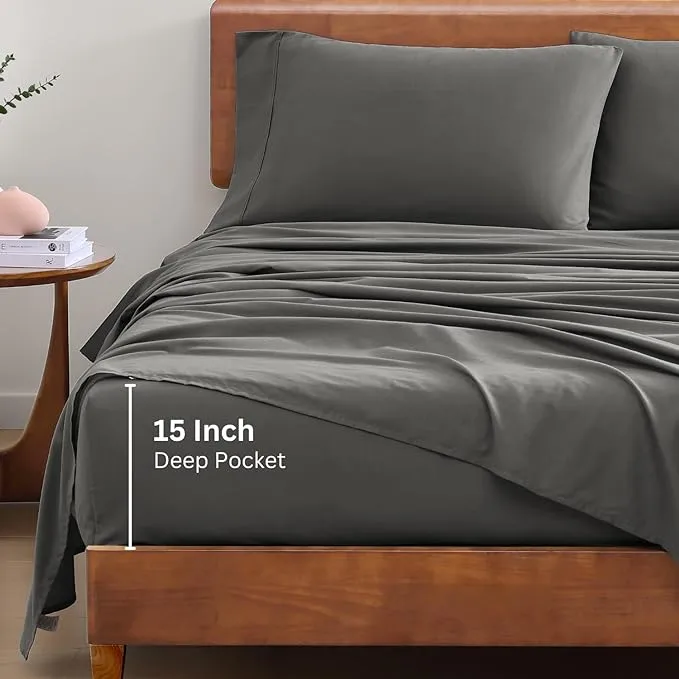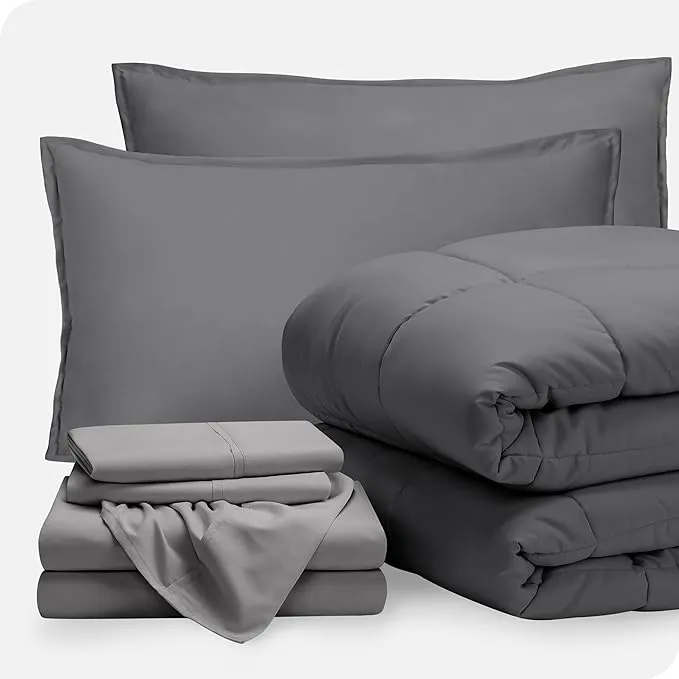A Pros and Cons Guide to Microfiber vs. Cotton Bedding

Your choice of bedding greatly influences your ability to get a good night’s sleep. Pros and downsides of microfiber vs. cotton bedding are two common options on the market. Determining which option is ideal for you might be aided by being aware of the benefits and drawbacks of each.
The natural fiber that is extracted from cotton plants is used to make sheets. Their sturdy and adaptable nature is well recognized. Depending on the weaving and treatment, cotton sheets can have a smooth or rough texture. Higher thread counts and longer staples are characteristics of premium cotton sheets, such as those made from Pima and Egyptian cotton. Designed to relieve allergies and bring comfort to those with sensitive skin, the Best Hypoallergenic Bed Sheets will help you sleep well.
Contrarily, synthetic materials like polyester and nylon are used to make microfiber sheets. They don’t wrinkle or shrink and are lightweight and silky. Microfiber sheets, on the other hand, can produce static and are more likely to stains.
There are various things to take into account while weighing the benefits and drawbacks of microfiber vs cotton bedding. When selecting the best option for your needs, consider factors including feel, cost, durability, and upkeep.
Because of their many advantages, cotton sheets are a popular option when it comes to selecting the ideal bedding. They are an excellent choice for a restful night’s sleep because they combine comfort, toughness, and ease of upkeep.


Despite these shortcomings, cotton sheets are popular bedding because they provide a peaceful and luxurious sleep. Understanding the advantages and cons of cotton sheets lets you choose based on your preferences and needs.

Microfiber sheets have gained popularity in recent years due to their unique features and benefits. Let’s explore the pros and cons of microfiber sheets to help you make an informed decision for your bedding needs.
In general, many people prefer microfiber vs. cotton bedding because of its softness, lightweight comfort, and ease of upkeep. But it’s crucial to take into account any possible disadvantages, such stains and static electricity. Consider your own requirements and preferences before determining if microfiber sheets are the best choice for you.
| Benefits of Microfiber Sheets | Drawbacks of Microfiber Sheets |
|---|---|
| Softness | Static Electricity |
| Lightweight | Staining |
| Easy Maintenance | Durability |
| Hypoallergenic |
When choosing between Microfiber vs. Cotton Bedding Pros and Cons, consider comfort, durability, upkeep, and affordability. Microfiber vs. Cotton Bedding Pros and Cons suit diverse tastes and needs.
Air flows through cotton bedding for a cool, comfortable sleep. Durable and available in a variety of quality and weave variants, they fit any budget. Soft and durable Egyptian or Pima cotton sheets provide a wonderful sleep experience. However, cotton sheets may shrink and wrinkle after washing.
However, microfiber linens are soft and lightweight, making them comfy. They resist wrinkles and shrinkage, making them easy to maintain. Microfiber sheets are hypoallergenic, making them ideal for delicate skin. Microfiber sheets soak more and stain more. Buying high-quality microfiber bedding is essential for longevity because thread count affects durability.
Microfiber vs. Cotton Bedding Pros and Cons comes down to personal preference and necessities. Some prefer cotton linens for breathability and durability. Microfiber bedding’ softness and ease of upkeep may appeal to others. Quality linens, whether microfiber or cotton, can improve your sleep and help you get a good night’s sleep.
Cotton sheets’ benefits and cons?
Durable, breathable cotton linens are easy to keep. However, they wrinkle quickly, shrink after washing, and cost more than polyester sheets.
How do microfiber and cotton bedding linens compare?
Soft, lightweight microfiber sheets resist creases and shrinking. They’re hypoallergenic. However, they generate static electricity and stain more easily.
How do cotton and microfiber sheets compare?
Cotton sheets are breathable and have different thread counts and weaves. They are sturdy and customizable. However, microfiber linens are lightweight, soft, and easy to clean. Both styles have pros and cons, so it relies on personal preference and needs.
Disclaimer: This page contains Affiliate Links to brand's websites. When you make purchases on their sites using these links, we may earn a commission on your purchase at no additional cost to you. (Disclamer)
